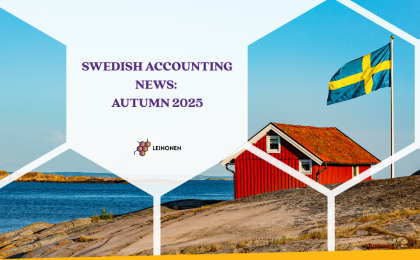According to the Government’s proposal, the “183-day rule” shall not apply to situations involving hired staff. Under this rule, individuals who are working temporarily in Sweden on behalf of a foreign employer are exempt from paying tax here if their stay in Sweden is shorter than 183 days per year.
According to the proposal, however, this 183-day rule shall not apply to hired labour. This means that an employee who is working temporarily in Swedish operations in Sweden shall pay tax here if he or she has a hired position via a foreign company. The operations in question may be a company with operations in Sweden or the Swedish state, a municipality or a region. The requirement regarding payment of tax shall not apply to hired staff who carry out an assignment for at most 15 consecutive days, and if the total number of working days in Sweden does not exceed 45 during a calendar year.
The amendments will come into force on 1 January 2021.
Source: https://www.riksdagen.se//news/2020/nov/4/hired-staff-are-to-pay-tax-in-sweden/




